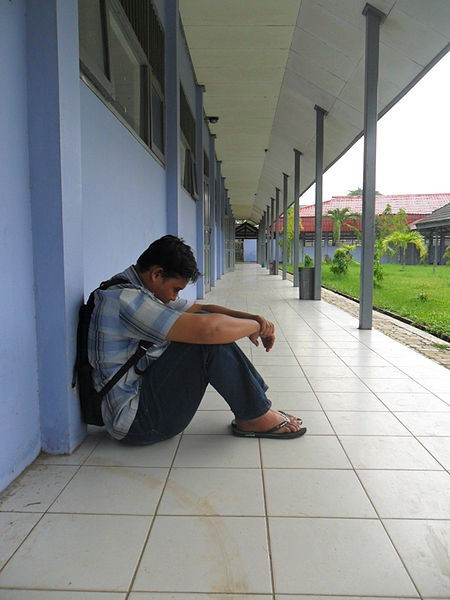Spending Valentine’s Day Alone? Why Singletons Always Feel Like the Odd One Out

Singletons and left-handed people experience a similar emotional response when it comes to being made to feel as the exception to the norm.
A study by Susanne Bruckmüller, from the University of Exeter, looks at the way singletons are stigmatised for being non-normative and are therefore prompted to explain their relationship status.
She says questions such as "how come a wonderful person like you is still single?", "why haven't you found anybody yet?" and "don't you feel lonely sometimes?" are familiar questions directed at single people.
However, Bruckmüller notes that people are rarely asked questions about how being in a relationships makes them feel.
She suggests normative groups - such as people in relationships and right-handers - are the default standard that non-normative groups are then compared to, meaning the later must explain their status.
Conducting three studies, Bruckmüller looked at how framing group differences' - comparing one group to another - makes people feel about their identities, or their collective self-esteem (CSE).
The first two studies looked at singletons and couples. The participants either read or wrote about how single people differed from those in a relationship and vice versa.

The study showed that single people felt worse about being single when they read or wrote about how they were different to couples.
However, when writing about how couples were different to them, single people had higher CSE.
In the third study, Bruckmüller found that left-handed people had lower self-esteem after writing about how they are different to right-handed people than when writing about how right-handed people differ from them.
The study said: "Regardless of the specific characteristics that the comparison focused on, being marked as different and having to explain one's group identity negatively affected members of non-normative, but not members of normative groups.
"The present research is the first to address how this asymmetric explanatory focus affects how people feel about the social groups that they belong to."
Bruckmüller said her study is the first to show that the way people experience their social identity relies on the way their group compares with other groups and that it matters "who is compared to whom".

"For members of non-normative groups, being singled out and having to explain oneself vis-à-vis the implicit standard of a more normative group can negatively affect their group-based sense of self-worth, regardless of the specific evaluative content of intergroup comparisons - likely because being the effect to be explained is experienced as stigmatising, othering, and disempowering," she wrote.
"Members of normative groups, on the other hand, might subtly profit from singling out others as the effect to be explained, as suggested by the positive correlation observed here between right-handed participants' CSE and their tendency to focus on left-handers."
She concludes that her study provides evidence that the way people talk about social groups and making stigmatised groups explain themselves is problematic.
"Hopefully, this research will contribute to a heightened awareness of how we talk about group-based phenomena, who we might be singling out by explaining certain groups more than others, and how this might inadvertently contribute to the maintenance and reification of social inequalities," Bruckmüller said.
© Copyright IBTimes 2025. All rights reserved.




















